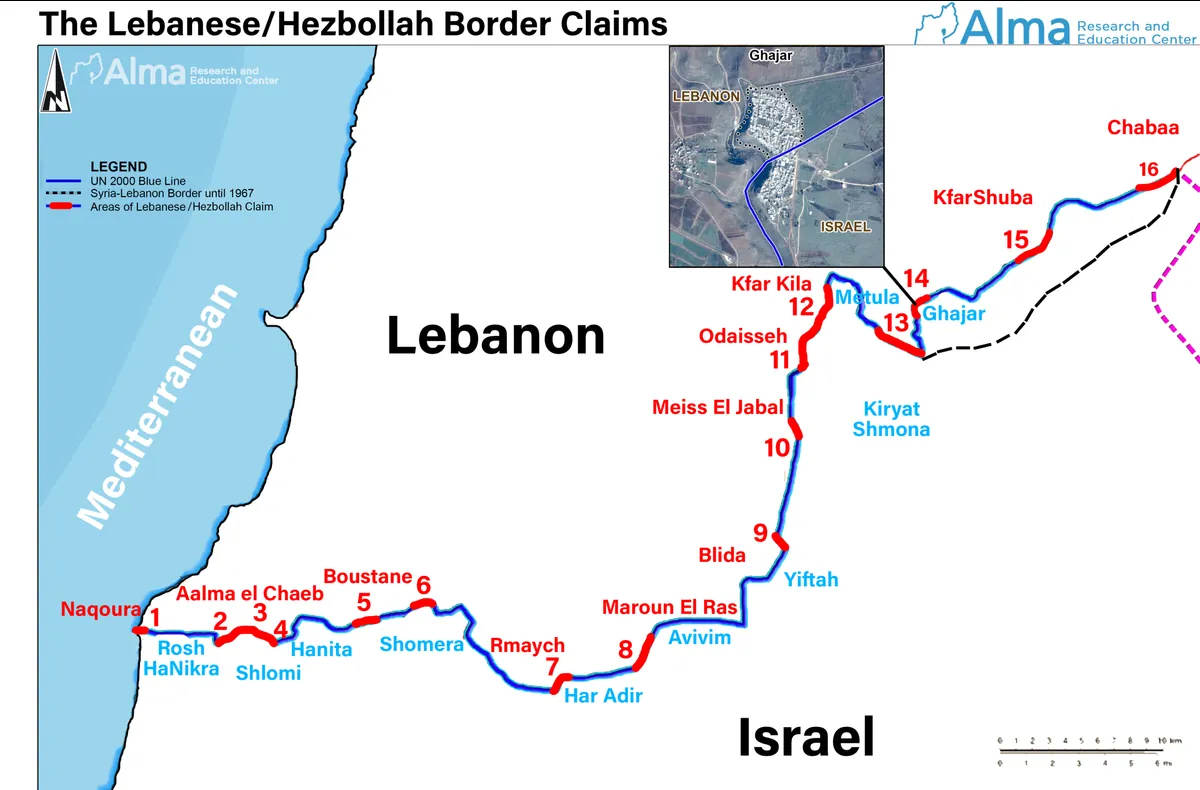In a significant diplomatic move, the United States, France, and several allied nations have proposed an immediate 21-day ceasefire along the Israel-Lebanon border. This initiative, announced in late September 2024, aims to de-escalate tensions and create an opportunity for diplomatic negotiations in the region.
The joint statement, released by the White House, describes the situation between Lebanon and Israel since October 8th, 2023, as "intolerable" and warns of the risk of broader regional escalation. The proposal calls for both the Israeli and Lebanese governments to endorse the temporary ceasefire without delay.
The Blue Line, established by the United Nations in 2000, marks the border between Israel and Lebanon. This area has been a flashpoint for conflicts, with the 2006 Lebanon War lasting 34 days between Israel and Hezbollah, a Lebanese Shiite Islamist political party and militant group founded in 1982.
The coalition behind this ceasefire proposal includes the European Union, Germany, Saudi Arabia, Qatar, and the United Arab Emirates, among others. These nations have historically played various roles in Middle East peace processes. For instance, Saudi Arabia proposed the Arab Peace Initiative in 2002, while the UAE normalized relations with Israel in 2020 through the Abraham Accords.
A senior U.S. official commented on the ongoing diplomatic efforts:
"We have had those discussions for quite some time. We are aiming to convert those discussions into a broader agreement during this 21 day ceasefire period."
The official added that opening up diplomatic space in Lebanon during this period could potentially lead to a ceasefire in Gaza, which has remained elusive for months.
The proposal comes against the backdrop of the ongoing Israel-Gaza conflict, which began after a Hamas attack on October 7, 2023. This war has resulted in significant casualties, a humanitarian crisis, and allegations of genocide at the World Court, which Israel denies. The International Court of Justice, also known as the World Court, is the principal judicial organ of the United Nations, and the concept of "genocide" was first recognized as a crime under international law in 1946.
Recent escalations have seen Israel widening its airstrikes in Lebanon, targeting Hezbollah militant leaders and striking hundreds of sites deep inside the country. In response, Hezbollah has fired barrages of rockets into Israel. These hostilities have led to numerous casualties and the displacement of hundreds of thousands from the border region.
The situation in the broader Middle East remains complex, with various historical and ongoing conflicts. The West Bank has been under Israeli occupation since 1967, the same year Israel captured the Golan Heights from Syria. The Gaza Strip, governed by Hamas since 2007, has been under an Israeli-Egyptian blockade for over 17 years.
As diplomatic efforts continue, the international community remains hopeful that this 21-day ceasefire proposal will pave the way for more comprehensive peace negotiations in the region. The involvement of multiple nations and international bodies underscores the global concern over the escalating tensions and the urgent need for a peaceful resolution.
